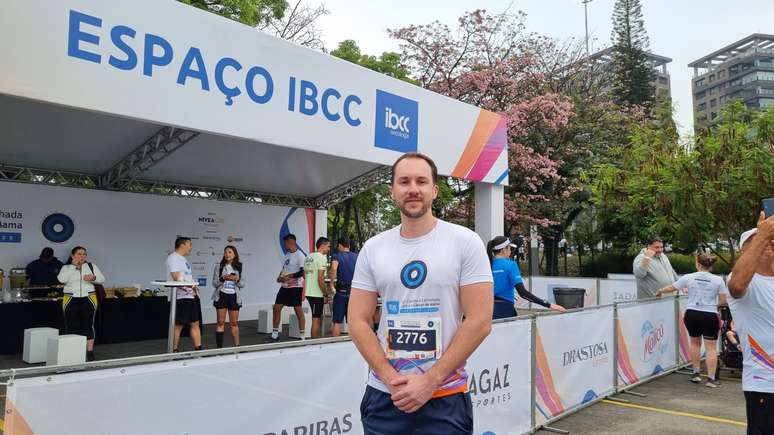Having a reservation can be a safety or a boost in early adulthood. Find out the best ways to save
Starting adulthood isn’t easy. We know that the child next to you (or maybe still in the belly, or just in the plans) is far from having the independence and autonomy to need a sum of money to help him realize his dreams. But believe me: it goes fast! You blinked and it’s been 18 years. For some people, it’s hard to think this way, in such a distant future, however that day will come – and the more you and your child are prepared, the better. Starting a financial reserve right now can make all the difference when your child is grown up and full of projects to conquer.
When to start saving? And, with so many options on the market, how to invest? How can we help the little one understand how much this resource is worth spending in the future too? We spoke to personal finance specialist Pedro Leão Bispo, a professor of Master in Business Administration (MBA) by Faculdade Getúlio Vargas (FGV-RJ), who gave five important tips. Write it down!
1. The earlier you start, the better
The truth is the baby doesn’t even need to be born for her parents to start saving an amount for her. “If you already know that the project is to have a child, you can, from the first moment, start this savings. It is a life project. The earlier you start, the better always”, says the expert.
2. After the priorities, before the superfluous
The idea is not to save at all costs, ok? Regardless of the age of your child, tip number 1 only works when there is money left over during the month, after having met the basic needs of the family and, above all, of the child.
“The money to be saved cannot cause a decline in the quality of education, food and housing. The basic structure of the family must be taken care of in the first place“, recommends the teacher.” If your child is in a good school, which provides him with a better condition to continue in the competition of life, has adequate nutrition and comfortable accommodation, then you can plan to deposit a full monthly amount. And ideally, this comes in planning, before traveling, buying a new car, etc. “, she adds.
3. Understand your profile
Savings, private retirement, direct cash, stocks, cryptocurrencies … With so many options, it’s not always easy to know what to invest in to ensure your money is safe and profitable. And at that point, there is no right and absolute way.
“If you are more conservative, safety comes first. So, your first options will be CDB, target income and savings. If you want to take bolder flights, then yes, variable income comes, like the stock market and cryptocurrencies.” , explains the Bishop. Venture capital, as the name suggests, means that despite the effort to save a certain amount, you may lose it. On the other hand, you can also earn more and at a faster rate.
For the teacher, a modality that satisfactorily meets long-term goals (such as saving money for the adult who will one day be the child) is private pension. “Financial institutions have offered well-structured products, which even earn income tax exemption. It can be beneficial,” he leads.

5. Financial education for yesterday
There is no point in saving money for a child for life if, in the future, he has no idea of the value of it and how he can best use the savings. Therefore, financial education from an early age is essential. And it’s very early, around 5 or 6 years old.
“Financial education is based on the absolute truth that all resources are limited. So, you have to learn how to spend,” says the professor. His advice is to go to a mall with the little one and give him a sum – R $ 20, for example. Say you can spend it however you want. “90% of the time, the child comes home with at least R $ 10. Now, if you release what to buy at the mall, as the child asks, he spends R $ 150. There is the perception of exchange,” suggests Bispo .
Finally, it is important that the family is also attentive to small daily habits. “There is that old phrase that everyone has heard or repeated: ‘Turn off the light, I’m not a partner in the electricity company.’ But that’s not all. You have to explain what it means, say why it’s a waste, let’s say that leaving the light turned on or the tap running, as well as damaging the environment, is like taking money out of your pocket and throwing it away “, he compares.
+The best content in your email for free. Choose your favorite Earth Newsletter. Click here!
Source: Terra
Benjamin Smith is a fashion journalist and author at Gossipify, known for his coverage of the latest fashion trends and industry insights. He writes about clothing, shoes, accessories, and runway shows, providing in-depth analysis and unique perspectives. He’s respected for his ability to spot emerging designers and trends, and for providing practical fashion advice to readers.



![Pre -Si Grand Soleil: Summary of Episode on Tuesday, October 14, October 14, 2025 [SPOILERS] Pre -Si Grand Soleil: Summary of Episode on Tuesday, October 14, October 14, 2025 [SPOILERS]](https://fr.web.img6.acsta.net/img/90/06/9006f8922e8bfda0a3290f9a6ff3fa74.jpg)


